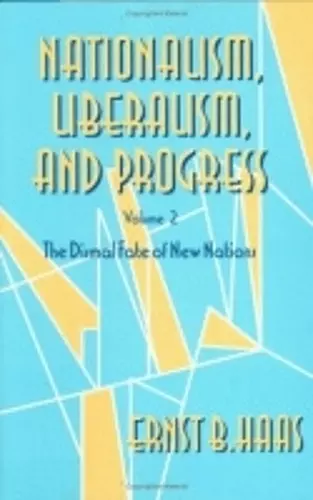Nationalism, Liberalism, and Progress
The Dismal Fate of New Nations
Format:Hardback
Publisher:Cornell University Press
Currently unavailable, and unfortunately no date known when it will be back

Far from being an inevitably aggressive and destructive force, nationalism is, for Ernst B. Haas, the primary means of bringing coherence to modernizing societies. In the second volume of his magisterial exploration of this topic, Haas emphasizes the benefits of liberal nationalism, which he deems more progressive than other nation-building formulas because it relies on reason to improve citizens' lives. The Dismal Fate of New Nations considers several societies that modernized relatively recently, many of them aroused to nationalism by the imperialism of the "old" nation-states. The book probes the different patterns of development in emerging countries—Iran, Egypt, India, Brazil, Mexico, China, Russia, and Ukraine—for insights into the possibilities and limitations of all nationalisms, especially liberal nationalism. Employing a systematic comparative perspective, Haas organizes the book around the notion of change and its management by political elites in Asia, Eastern Europe, Latin America, and the Middle East. Haas particularly wants to understand how nationalism plays out in the politics of modernization within non-Western cultures, especially those where religions other than Christianity predominate. Where the hold of religion remains formidable, he argues, the mixture of traditional and secular-modernist institutions and beliefs will challenge the victory of liberal nationalism and the very success of nation-state formation.
"The Dismal Fate of New Nations is an interesting addition to the literature on nations and nationalism."-Umut Ozkirimli, Millennium: Journal of International Studies "This grand work in comparative sociology offers a systematic comparison of nationalism's modernizing effect on both new and older nations. Further, it presents a normative evaluation of possible futures that advocates Liberalism as a process and presents continuing growth in knowledge and reason as the most desirable outcome. The breadth of Ernst Haas' scholarship, the scope of his analytic skills and the depth of his humanism are awesome."-Stanley Hoffmann, Buttenwieser University Professor, Harvard University "It is impossible to read this book without thinking of Max Weber. Haas dares tackle a major and misunderstood issue-nationalism-by contrasting the recent experiences of eight non-Western societies with the earlier ones of Europe and America. And he does so with formidable erudition, an acute sensitivity to differences in religion and culture, and a rare sense of objectivity."-Philippe C. Schmitter, European University Institute
ISBN: 9780801431098
Dimensions: 235mm x 155mm x 33mm
Weight: 907g
496 pages